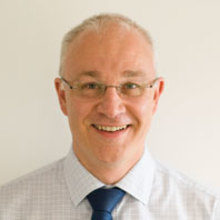From the Chief Executive
08 November 2016

Next month, our Deputy Chief Executive, Dariel Burdass, will leave the Microbiology Society after 17 years. This is a major event for the Society, and not just because Dariel is the longest-serving member of staff and knows more about the organisation than anyone else in the office. The list of her achievements during her time here is enormous and covers a very wide range of our activities.
She developed many of the Society’s activities that are designed to reach out to non-scientific audiences. They are too numerous to mention, and there are many highlights. In 2012, the Society won a Silver-Gilt Medal at the Chelsea Flower Show for an exhibit called the New Green Revolution, for which Dariel was the driving force. It encouraged gardeners to take an adventure in soil, and appreciate the extent to which the healthy growth of plants depends on the communities of microbes below the surface. Our education website, Microbiology Online, which Dariel pioneered, now gets around a million hits per year, demonstrating just how much interest there is in microbiology. She also wrote the inspirational book, The Good, The Bad and The Ugly – Microbes, to support the teaching of microbiology in schools.
In recent years, Dariel has led the Antibiotics Unearthed project, which is crowdsourcing the hunt for novel drugs against infectious disease. The general public, students and educators can get involved by sampling the soil in their local area, with the samples then analysed for chemical compounds generated by soil bacteria, which may have antibiotic properties. It is an illustration of how Dariel’s projects can capture the wider imagination that earlier this year, we were invited to sample the soil in the garden of 10 Downing Street.
As Dariel’s time at the Society progressed, she began to take on wider responsibilities and led the development of our new website, and the Society’s distinctive brand, which continues to draw appreciative comments from many quarters. She has championed the Society’s international role and has been very involved with the Federation of European Microbiology Societies (FEMS).
When Council took the decision to build a new area of activity – policy work – it was to Dariel they turned to make it happen. From nothing, she built the Society’s capacity in policy remarkably quickly. It is a mark of just how impactful that work has become that in September, the Microbiology Society was one of the participants in a meeting at the United Nations in New York, at which governments from around the world agreed to coordinate their collective funding for antimicrobial resistance so they can deliver maximum benefits.
More recently, Dariel took on the job of revising the Society’s strategic plan, no easy task given the choices we must continually make about where to invest across the huge array of different ways in which we could advance the science of microbiology.
Dariel will be familiar to any member who has been at any of the Society’s Annual Conferences for the past 17 years, or at many other scientific meetings, AGMs, outreach events and other occasions. She is well known to dozens of Council and Committee members past and present, and has worked with thousands of members and innumerable external partners over the years. Throughout that time, she has spread her infectious enthusiasm for microbes, for the Microbiology Society and for everything we strive to achieve. The discipline of microbiology in the UK and Ireland, and around the world, is healthier because of what she has done and what she has achieved at the Society.
Dariel is not going far – she will be the new Chief Executive of the Physiological Society, a learned society that serves the physiological community in many of the same ways that we at the Microbiology Society serve our members. I know that many, many members of the Microbiology Society will want to join me in wishing Dariel every success in her new job.
PETER COTGREAVE
Chief Executive
[email protected]


